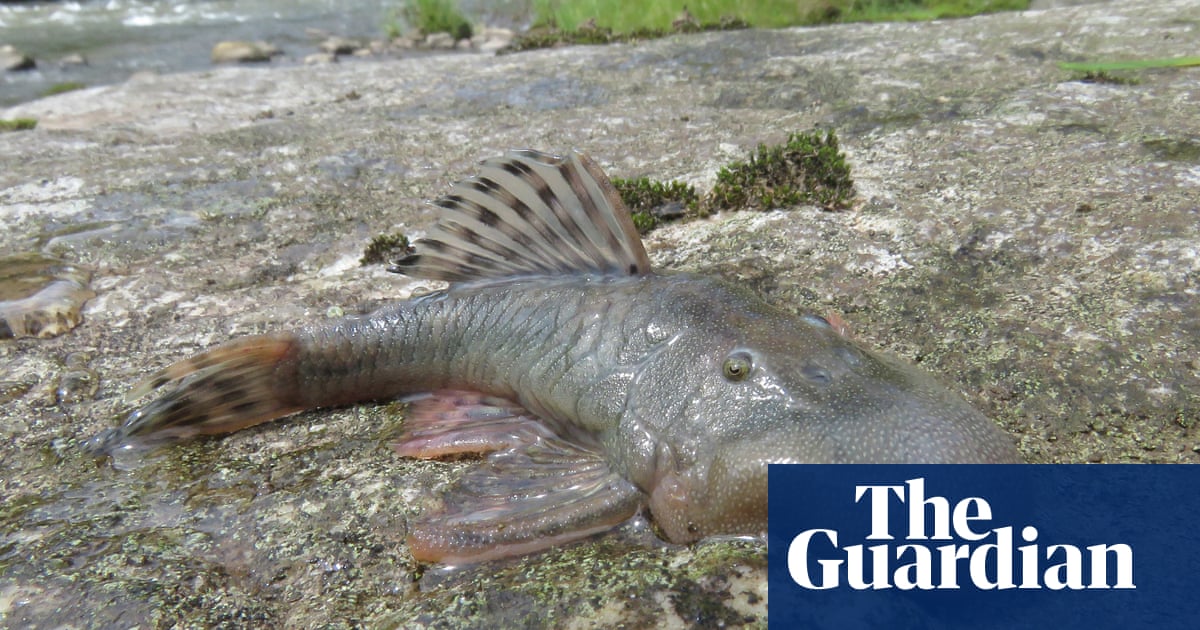BHP to face 620,000 claimants in Mariana dam collapse trial in London | Brazil

The mother of a seven-year-old boy who was torn from the arms of his grandmother and drowned in one of Brazil’s worst environmental disasters is among more than 620,000 claimants who will have their case heard this month in the largest group claim in English legal history.
Gelvana Aparecida Rodrigues da Silva, 37, lost her son Thiago on 5 November 2015 when the Fundão dam, near Mariana in eastern Brazil, collapsed, releasing about 50m cubic metres of toxic waste.
The avalanche of water reached the small community of Bento Rodrigues within minutes, killing 19 people, including Thiago, who had been staying with his grandmother at the time.
“His grandmother said that he asked for Jesus,” said Da Silva of her son’s final moments. “He called for Jesus to save him. But they got ripped apart.”
Thiago’s body was found a week later, 60 miles (100km) away. “That moment, my life ended,” she said. “Everything changed.”
The iron ore waste stored in the dam rapidly moved down various watercourses, spilling over their banks and into the neighbouring municipalities of Mariana, Barra Longa, Rio Doce and Santa Cruz do Escalvado.
It destroyed bridges, roads, houses, factories and other commercial premises, as well as farmland, wildlife and historic churches containing priceless artefacts.
About 620,000 individuals, 46 Brazilian municipalities, 2,000 businesses and 65 faith-based institutions are to claim damages from the Anglo-Australian mining company BHP at a high court trial in London scheduled to be heard over 12 weeks, from 21 October.
Tom Goodhead, the chief executive of the international law firm Pogust Goodhead, which is representing the claimants, said they will argue that BHP is liable as a 50% shareholder in Samarco, the joint venture company responsible for managing the Fundão tailings dam.
It is further claimed that BHP, who were in a joint venture with the Brazilian iron-ore mining company Vale, were negligent in that although “they were aware of the risks of the dam collapsing, they funded its expansion”, Goodhead said. The claimants are seeking up to $44bn (£33.6bn) in compensation.
BHP, along with Vale and Samarco, established the Renova Foundation to provide compensation for individuals and some small businesses for loss and damages, as well as mitigating environmental impacts. The company said it would defend the legal action.
after newsletter promotion
A BHP spokesperson said: “The Fundão dam collapse was a tragedy and our deepest sympathies remain with the impacted families and communities.
“The Renova Foundation, established in 2016 as part of our agreement with the Brazilian authorities, has spent more than $7.7bn on emergency financial assistance, compensation and repair and rebuilding of environment and infrastructure to approximately 430,000 individuals, local businesses and Indigenous communities.
“BHP Brasil is working collectively with the Brazilian authorities and others to seek solutions to finalise a fair and comprehensive compensation and rehabilitation process that would keep funds in Brazil for the Brazilian people and environment affected, including impacted Indigenous communities.
“BHP continues to defend the legal action in the UK. We believe that the UK litigation, which, if successful, would not see claimants receive payment until 2028 at the earliest, duplicates – and harms – local remedial efforts in Brazil.
“As a non-operating joint-venture partner in Samarco, BHP Brasil does not have operational or day-to-day control of the business. BHP did not own or operate the dam or any related facilities.”
Thiago’s father, who died two years ago, received a small payment for compensation after the disaster, which he shared with Da Silva, but she said she had not had any personal contact with the companies involved.
She said: “The only thing that we are asking for is justice, for this to never happen to any other mother. No money in the world can bring my son back, but I want them to be responsible for this, for this crime.”
Goodhead said: “To our knowledge, this is the largest ever group action in the English courts and we believe, probably the largest anywhere in the world. And that’s likely by value as well as the number of claimants who are participating in it.”
Source link




